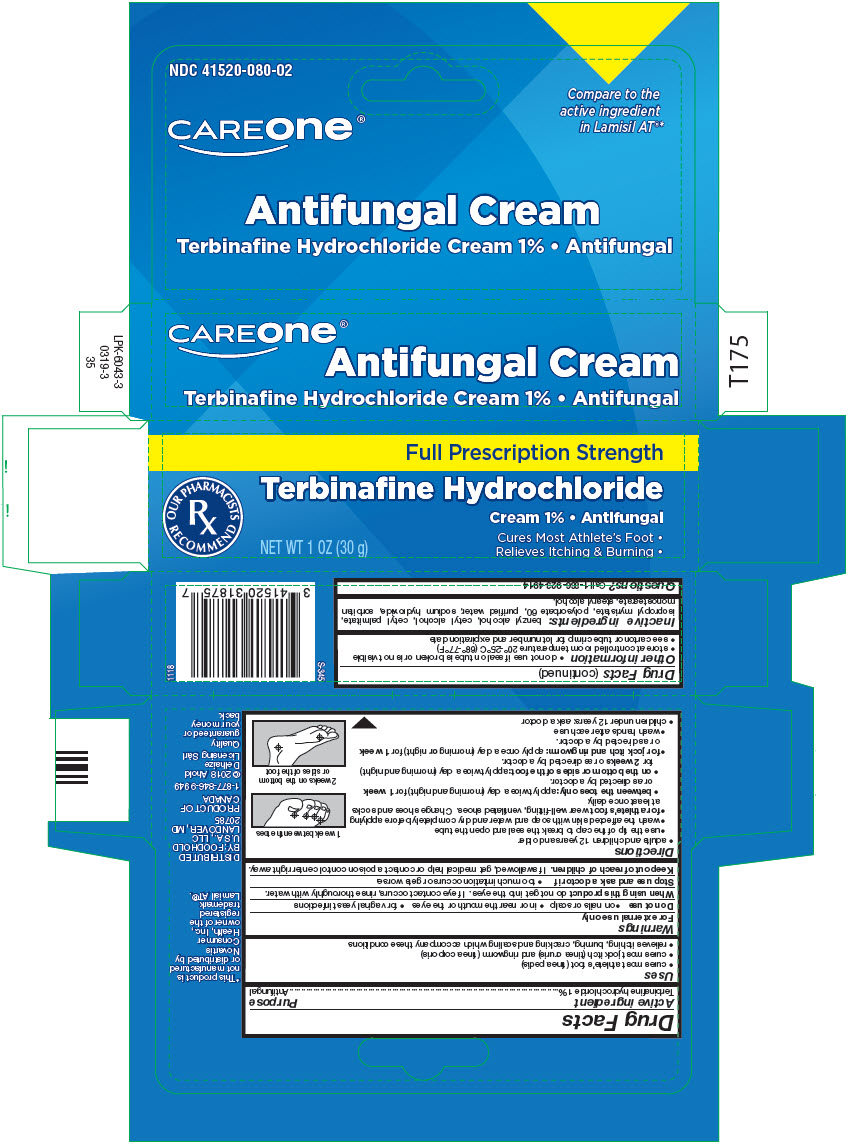Antifungal Foot | Terbinafine Hydrochloride Cream while Breastfeeding

What is Antifungal Foot | Terbinafine Hydrochloride Cream used for?
Brief: Antifungal
Is using Antifungal Foot | Terbinafine Hydrochloride Cream unsafe in breastfeeding? Can there be bad consequences for baby if I use it while breastfeeding?

Antifungal Foot | Terbinafine Hydrochloride Cream Breastfeeding Analsys
Terbinafine hydrochloride while Breastfeeding
SafeCAS Number: 91161-71-6
Pharmacokinetics data (low oral bioavailability, high volume of distribution and high protein-binding capacity) explains the scanty excretion into breast milk observed in nursing mothers who received this medication. In addition, a poor oral absorption would make even more difficult any pass of this drug through ingested milk to the infant's blood, except in newborns or premature who would show a higher intestinal absorption. Avoid using in prematures who are under treatment with caffeine or theophylline because terbinafine alters its metabolic degradation and increases plasma concentration. Since topical absorption is less than 1%, a significant excretion into breast milk after application on skin is not expected. Do not use on the breast to prevent ingestion by the infant, otherwise apply after a meal and wipe it out thoroughly with water before next feeding. It is recommended to avoid using on the nipple creams, gels and other products intended for use on skin that may contain paraffin (mineral oil) in order to keep from absorption the infant.
Antifungal Foot | Terbinafine Hydrochloride Cream Breastfeeding Analsys - 2
Terbinafine hydrochloride while Breastfeeding
CAS Number: 91161-71-6
Limited information indicates that oral maternal doses of 500 mg daily produce low levels in milk and would not be expected to cause any adverse effects in breastfed infants, especially if the infant is older than 2 months. Monitor the infant for jaundice or other signs of liver toxicity, especially in younger, exclusively breastfed infants. Some sources recommend avoiding oral terbinafine during nursing.[1] Topical terbinafine has not been studied during breastfeeding. Because only about 1% is absorbed after topical application, it is considered a low risk to the nursing infant.[1][2] Avoid application to the nipple area and ensure that the infant's skin does not come into direct contact with the areas of skin that have been treated. Only water-miscible cream, gel or liquid products should be applied to the breast because ointments may expose the infant to high levels of mineral paraffins via licking.[3]
What should I do if I am breastfeeding mother and I am already exposed to Antifungal Foot | Terbinafine Hydrochloride Cream?
It is always a good idea to keep your healthcare provider or doctor informed about your drug usage during pregnancy and breastfeeding but if you have not informed your doctor about Antifungal Foot | Terbinafine Hydrochloride Cream and have used it then do not panic as Antifungal Foot | Terbinafine Hydrochloride Cream is mostly safe in breastfeeding and should not cause any harm to your baby.
My health care provider has asked me to use Antifungal Foot | Terbinafine Hydrochloride Cream, what to do?
Usage of Antifungal Foot | Terbinafine Hydrochloride Cream is safe for nursing mothers and baby, No worries.
If I am using Antifungal Foot | Terbinafine Hydrochloride Cream, will my baby need extra monitoring?
No
Who can I talk to if I have questions about usage of Antifungal Foot | Terbinafine Hydrochloride Cream in breastfeeding?
US
National Womens Health and Breastfeeding Helpline: 800-994-9662 (TDD 888-220-5446) 9 a.m. and 6 p.m. ET, Monday through Friday
UK
National Breastfeeding Helpline: 0300-100-0212 9.30am to 9.30pm, daily
Association of Breastfeeding Mothers: 0300-330-5453
La Leche League: 0345-120-2918
The Breastfeeding Network supporter line in Bengali and Sylheti: 0300-456-2421
National Childbirth Trust (NCT): 0300-330-0700
Australia
National Breastfeeding Helpline: 1800-686-268 24 hours a day, 7 days a week
Canada
Telehealth Ontario for breastfeeding: 1-866-797-0000 24 hours a day, 7 days a week
